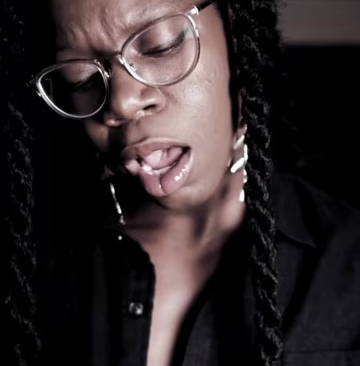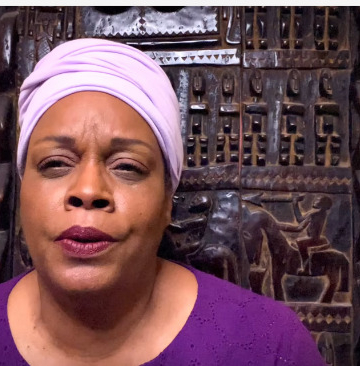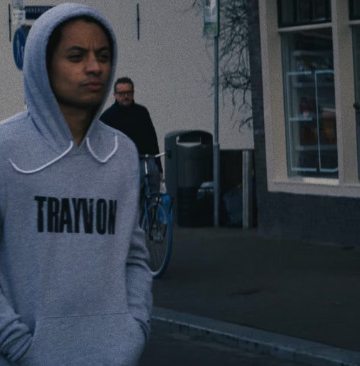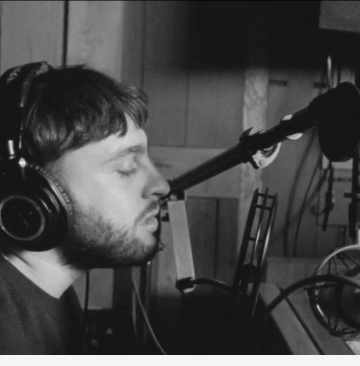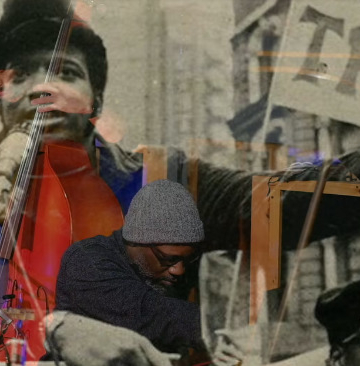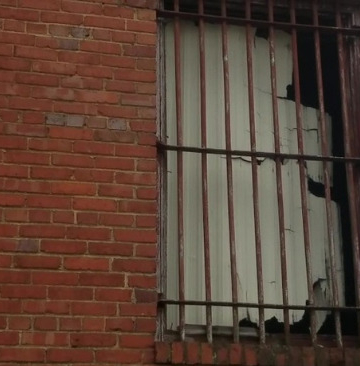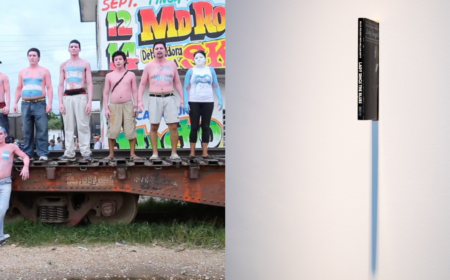What would it mean to study the problem of incarceration not only from the view of specialists who dominate the narrative—criminologists, sociologists, even historians—but also from the view of artists? How can the arts catalyze thinking and dreaming that both expand our notions of the prison industrial complex and also denaturalize its workings and effects?
Visualizing Abolition Studies (VAST), a certificate program housed in the Humanities Division offers undergraduate students access to a curriculum in critical studies of incarceration that develops skills in analyzing art and visual culture. With VAST classes offered by faculty in the Humanities, Social Sciences, and Arts, the program offers an interdisciplinary, cross-departmental frame for examining art and social problems as a response to a critical dynamic: visual materials co-constitute our world. They are often the primary means through which we come to access it. Yet, art and visual culture’s roles in normalizing or destabilizing our carceral society are often overlooked. VAST will prepare students to challenge the existing criminal legal system and the means through which we come to study it, developing critical thinking about the social and cultural systems that structure our lives and the tools needed to meaningfully advocate for social justice.
How to Earn the Certificate
A total of fifteen credits are required to complete the certificate (See list of courses below).
Additional Certificate Requirements
One class must be VAST 1/FMST 71: Introduction to Visualizing Abolition Studies .
The credits must be earned in courses listed with a VAST course code, courses listed on this webpage, or courses approved in consultation with the VAST advisers.
You can take the courses in any order you choose.
VAST Advising
Connect with the VAST Certificate Advisor Students can connect with the VAST Certificate advisor by sending an email or setting up an appointment on Slug Success. Program Advisor: Maya Woolfe (she/her), Director of Student Engagement for the Humanities.
Email Advising
Email advising is great for asking quick questions. Please email us at vast@ucsc.edu with your UCSC email and provide your full name and student ID number (SID). Please allow 3-5 business days for a response.
Appointments
Schedule 30-minute appointments on Slug Success or the Navigate app. For help with Slug Success, please take a look at these how-to guides.
Here is a direct link to the VAST Advisors Appointment Availability.
Certificate Level Learning Outcomes
Certificate Level Learning Outcomes
As a result of completing the VAST certificate program, students will be able to:
- Think beyond the entrenched social dynamics that center on punishment.
- Analyze the role played by visual media in constructing past and present social systems.
- Create and/or interpret visual art to challenge carceral practices and fashion new modes of relationality.
- Develop critical skills and workplace experience required to enter multiple post-graduate professions such as (but scarcely limited to): the arts, teaching, legal work, the non-profit sector, and social work.
VAST Courses 2025-2026
| Fall 2025 |
| VAST 1/FMST 71: Introduction to Visualizing Abolition Studies with Rachel Nelson |
| VAST 188J/HAVC 188J: Curation and Justice with Alex Moore |
| Winter 2026 |
| PSYC 147A: Psychology and Law with Craig Haney Prerequisite(s): PSYC 100 |
| FILM 174A: Making an Exoneree with Sharon Daniel and Pooja Rangan Enrollment is by application; application materials are available during the last three weeks of the preceding quarter. Learn more here. Commitment to enrollment in FILM 174B in the following quarter is required. |
| LGST/POL 182: The Power to Punish with Anjuli Verma |
| Spring 2026 |
| ART 108: Art, Design, Social Practice Prerequisite(s): Three courses from: ART 15, ART 20G, ART 20H, ART 20I, ART 20J, ART 20K, ART 20L, ART 26; or by permission of instructor. Enrollment is restricted to art majors. |
| FILM 171S: Special Topics in Film and Digital Media Production Prerequisite(s): FILM 170B |
| PRTR 132: Writing the Future: Science Fiction with Ksenia Fir |
| FILM 174B: Making an Exoneree with Sharon Daniel and Pooja Rangan |
| PSYC 147B Psychology and Law Prerequisite(s): PSYC 147A |
VAST Courses 2024-2025
| Fall 2024 |
| VAST 1/FMST 71: Introduction to Visualizing Abolition Studies with Rachel Nelson |
| FILM 194S: Special Topics Seminar: Infrastructures of Control and Resistance with Abram Stern |
| Winter 2025 |
| VAST/FMST 176: Law, Prisons, and Popular Culture with Gina Dent |
| FILM 174A: Making an Exoneree with Sharon Daniel (APPLY HERE– 2 Quarter class) |
| Film 171S: Special Topics in Film and Digital Media Production with Chari Glogovac-Smith |
| LGST/ Psych 147A: Psychology and Law with Craig Haney |
| ART 108: Art, Design, and Social Practice with Claudio Bueno |
| Spring 2025 |
| HAVC 144A – Latin American Art and Visual Culture with Tatiane Santa Rosa |
| FILM 174B: Making an Exoneree with Sharon Daniel (APPLY HERE– 2 Quarter class) |
| Summer 2025 |
| FILM 160: Film Genres,” Special Focus: “Crime and Punishment Onscreen with Ksenia Fir |
VAST Courses 2023-2024
| ART 175: Taking Art to the Streets with John Jota Leaños (Spring 2024) |
| PSYC/LGST147B: Psychology & Law with Craig Haney (Spring 2024) |
| PSYC 150-01: Race, Education, and the Carceral State with Julissa O. Muñiz (Spring 2024) |
| PSYC 159-G: Gender, Race, And Justice with Julissa O. Muñiz (Spring 2024) |
| VAST 1/FMST 71: Introduction to Visualizing Abolition Studies with Rachel Nelson (Winter 2024) and Gina Dent and Rachel Nelson (Spring 2023) |
| MUSC 11B: Introduction to Jazz with James Gordon Williams (Winter 2024) |
| PSYC/LGST147A: Psychology & Law with Craig Haney (Winter 2024) |
| HAVC 191S: Topics in American Art and Visual Culture with Jennifer González (Winter 2024) |
| CRES 115: Frantz Fanon: Resistance, Revolution, and Decolonization with Sophia Azeb (Winter 2024) |
| PSYC 150-01: Race, Education, and the Carceral State with Julissa O. Muñiz (Winter 2024) |
| VAST/FMST 176: Law, Prisons, and Popular Culture with Gina Dent (Fall 2023) |
| SOCY 196S: Black Geographies and the Imperative of Abolition with Camilla Hawthorne (Fall 2023) |
| CRES 132: Black Speculations with Sophia Azeb (Winter 2023) |
| FILM 171S Special Topics in Film and Digital Media Production (“Making an Exoneree”) with Sharon Daniel (Winter 2023) |
| KRSG 60C: Prison Narratives with Luke Fidler (Summer 2023) |
| VAST 1/FMST 71: Introduction to Visualizing Abolition Studies with Gina Dent and Rachel Nelson (Spring 2023) |
VAST Affiliated Faculty and Departments
| Gina Dent (Humanities) (Faculty Director) |
| Sophia Azeb (Critical Race and Ethnic Studies) |
| Jorge Menna Barreto (Art) |
| Cláudio Bueno (Art) |
| Sharon Daniel (Film & Digital Media) |
| Joseph Erb (Film & Digital Media) |
| Mayanthi Fernando (Anthropology) |
| Chari Glogovac-Smith (Film & Digital Media) |
| Jennifer González (History of Art and Visual Culture) |
| Craig Haney (Psychology) |
| Camilla Hawthorne (Sociology) |
| Isaac Julien (Art) |
| Caitlin Keliiaa (Feminist Studies) |
| John Jota Leaños (Film & Digital Media) |
| Cinthya Martinez (Latin American & Latino Studies Dolores Huerta Research Center for the Americas) |
| Laurie Palmer (Art) |
| Dorothy Santos (Art) |
| Savannah Shange (Anthropology/Critical Race and Ethnic Studies) |
| Abram Stern (Art) |
| James Gordon Williams (Music) |
| Ronaldo V. Wilson (Literature) |
| Lauren Lyons (Philosophy) |
Contact
Advising for the VAST program is administered through the Humanities Division. Please email vast@ucsc.edu with questions.


